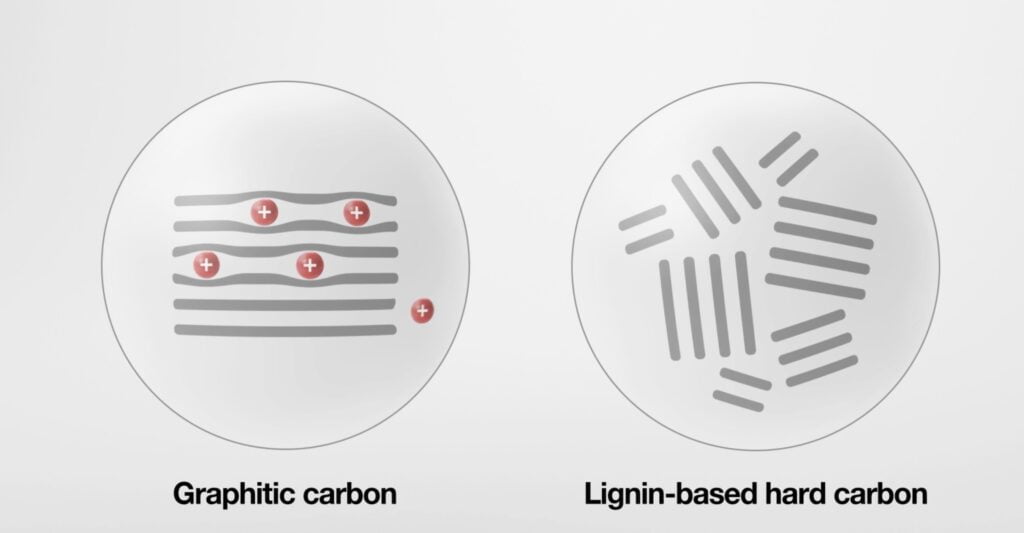ButSpeak.com
News which Matters.

Stora Enso and Altris develop lignin-based batteries, aiming to revolutionize sustainable energy storage and reduce reliance on traditional lithium batteries.
In an ambitious project that could revolutionize sustainable energy storage, Stora Enso, a Finnish company specializing in forest industry and renewable products, has partnered with Swedish battery developer Altris to produce a lignin-based battery alternative called Lignode. Lignin, a natural polymer found in trees, is the key ingredient in this innovative energy storage method. If successful, it could provide a sustainable substitute for components currently used in widely adopted lithium batteries.
Lithium batteries are known for their high energy density, making them essential for powering devices like phones, tablets, laptops, and electric vehicles. They also play a crucial role in renewable energy systems, such as solar and wind power. However, the production of lithium batteries releases a significant amount of carbon pollution, contributing to environmental degradation. The Institute for Energy Research highlights the considerable environmental impact of lithium battery production, noting that the process emits large quantities of carbon into the atmosphere. Additionally, lithium batteries often end up in landfills, where they can release toxic heavy metals into the soil and groundwater, posing further environmental and health risks.

A significant issue with lithium batteries is their reliance on graphite, a component largely supplied by China. This dependency creates geopolitical and economic vulnerabilities, as China derives almost 60% of its electricity from coal, according to the Institute for Energy Research. Coal-based power generation is a major source of toxic pollution, which contributes to extreme weather events, harms ecosystems, and negatively impacts human health.
The collaboration between Stora Enso and Altris aims to address these issues by leveraging lignin, which constitutes up to 30% of a tree and is abundantly available. Lignin is a bio-based material that includes carbon in its composition, making it a suitable replacement for graphite in the anodes of both lithium and sodium-ion batteries. Sodium-ion batteries are particularly noted for their sustainability and ease of recycling, as highlighted by Altris. This shift to lignin-based anodes could significantly reduce the environmental footprint of battery production.

Juuso Konttinen, Senior Vice President and Head of Biomaterials Growth at Stora Enso, emphasized the potential of lignin in creating sustainable battery solutions. “With Lignode having the potential to become the most sustainable anode material in the world, this partnership with Altris aligns perfectly with our common commitment to support the ambition of more sustainable electrification,” Konttinen said in a report by Interesting Engineering.
Stora Enso notes that lignin is a byproduct of pulp production, making the anode manufacturing process part of a circular economy. By turning a side stream into a valuable resource, this approach not only utilizes existing materials efficiently but also minimizes waste.
The potential benefits of this project are vast, including reduced air pollution, minimized toxic landfill waste, smoother implementation of clean energy initiatives, and the promotion of accessible, affordable, natural materials in mainstream products. Over the next few years, the companies will continue to develop and refine this technology, with the hope of making a significant impact on the energy storage industry.
The development of lignin-based batteries reflects a broader trend in seeking eco-friendly alternatives to current technologies. As the demand for energy storage solutions grows, particularly with the rise of renewable energy sources, finding sustainable materials that do not compromise on performance is crucial. This initiative by Stora Enso and Altris represents a promising step in that direction, offering a potential solution that aligns with global sustainability goals.